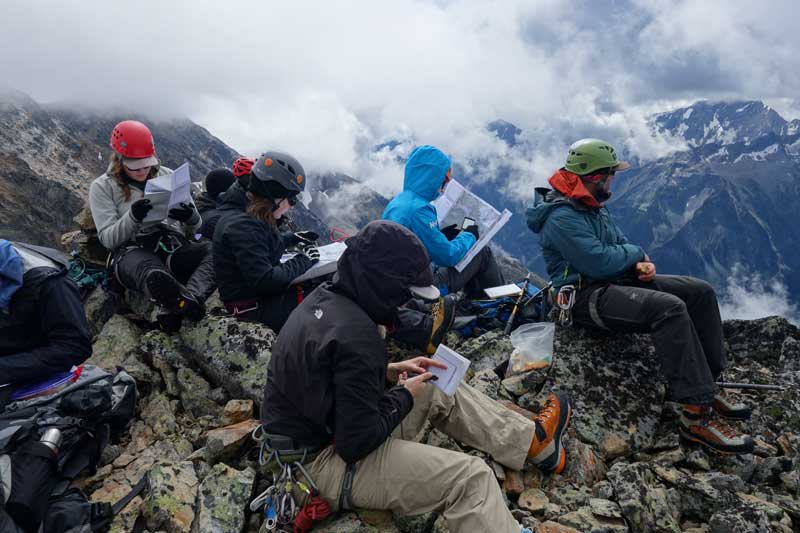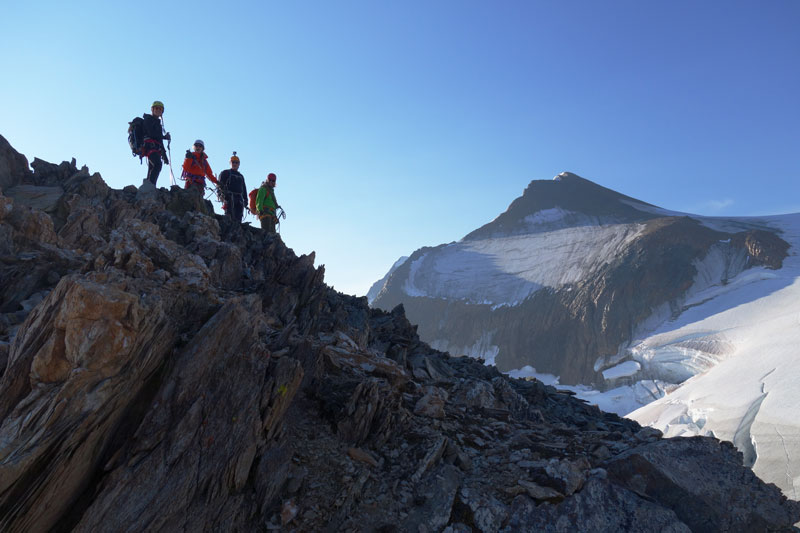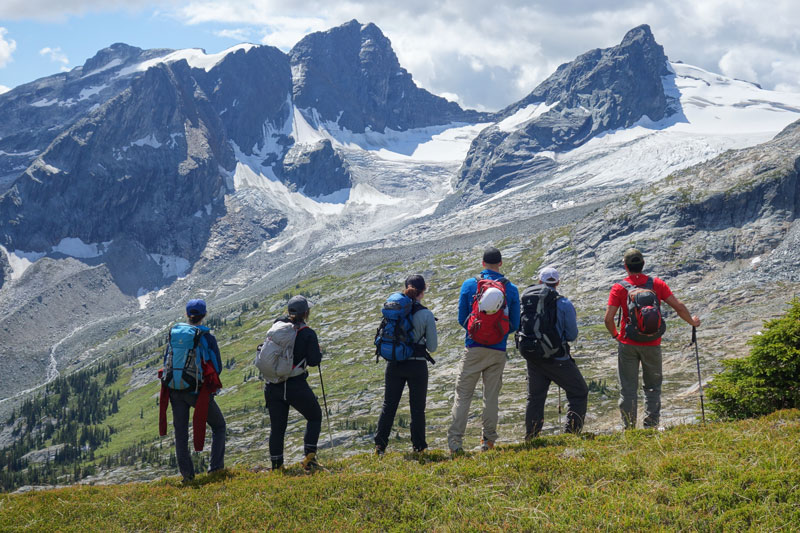Courses
Mountains 101 MOOC
Mountains 101 is a 12-lesson course teaching a comprehensive overview of mountains and their environmental and human impact. Topics covered include:
- the geological origins of mountains;
- importance for biodiversity and water cycles, globally and locally;
- their cultural significance around the globe;
- how mountains are being affected by rapid change in a warming climate;
- and more.
For-Credit Courses
INTD 280: The Mountain World |
An interdisciplinary study of the physical and human dimensions of mountain environments. Content includes the physical (glaciers, climate, geology, etc.), biological (flora, fauna, ecology, etc.), physiological (human bodies at altitude, performance, sport, etc.), and cultural (societies, literature's, histories, etc.) dimensions of these unique regions, as well as a critical analysis of the processes of change and influence shaping local and regional mountain environments around the globe, past and present. (Offered jointly by the Faculty of Physical Education and Recreation and the Faculty of Science) 2 for-credit sections of INTD280 are offered: one in-class, and one online as Mountains 101. Learn more about how to register for the for-credit online offering. |
INTD 282: Mountain Backcountry Field Skills |
Held at the Alpine Club of Canada's annual General Mountaineering Camp (GMC), this condensed one-week course is designed to impart an introduction to leadership skills (theoretical, technical, and personal) used in basic mountain backcountry field operations for scientific research, outdoor recreation, tourism, and/or educational purposes. This course is open to all UofA students. It's worth three credits. No prerequisite is required. And no prior backcountry skills are required. Register and learn more about INTD 282. For further info, contact the course instructor: zac.robinson@ualberta.ca |
EAS 209: Geology of Western Canada and the National and Provincial Parks |
An interdisciplinary study of the physical and human dimensions of mountain environments. Content includes the physical (glaciers, climate, geology, etc.), biological (flora, fauna, ecology, etc.), physiological (human bodies at altitude, performance, sport, etc.), and cultural (societies, literature's, histories, etc.) dimensions of these unique regions, as well as a critical analysis of the processes of change and influence shaping local and regional mountain environments around the globe, past and present. (Offered jointly by the Faculty of Physical Education and Recreation and the Faculty of Science) |
EAS 105: The Dynamic Earth Through Time |
The plate tectonic framework of a dynamic Earth as it relates to the origin of major groups of minerals and rocks. Earthquakes, structural geology, and the origin of mountain belts. Surface processes and their sedimentary products. History of life and extinctions. Not available to students with credit in EAS 101, 210 or SCI 100. Prerequisite: EAS 100 or GEOPH 110 or GEOPH 210. |
EAS 209: Geology of Western Canada and the National and Provincial Parks |
An interdisciplinary study of the physical and human dimensions of mountain environments. Content includes the physical (glaciers, climate, geology, etc.), biological (flora, fauna, ecology, etc.), physiological (human bodies at altitude, performance, sport, etc.), and cultural (societies, literature's, histories, etc.) dimensions of these unique regions, as well as a critical analysis of the processes of change and influence shaping local and regional mountain environments around the globe, past and present. (Offered jointly by the Faculty of Physical Education and Recreation and the Faculty of Science) |
EAS 105: The Dynamic Earth Through Time |
The plate tectonic framework of a dynamic Earth as it relates to the origin of major groups of minerals and rocks. Earthquakes, structural geology, and the origin of mountain belts. Surface processes and their sedimentary products. History of life and extinctions. Not available to students with credit in EAS 101, 210 or SCI 100. Prerequisite: EAS 100 or GEOPH 110 or GEOPH 210. |




